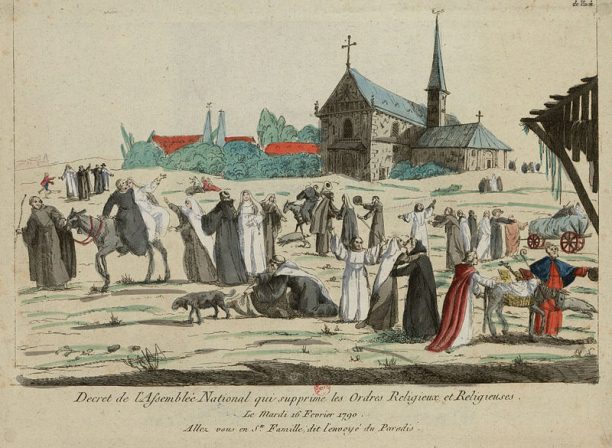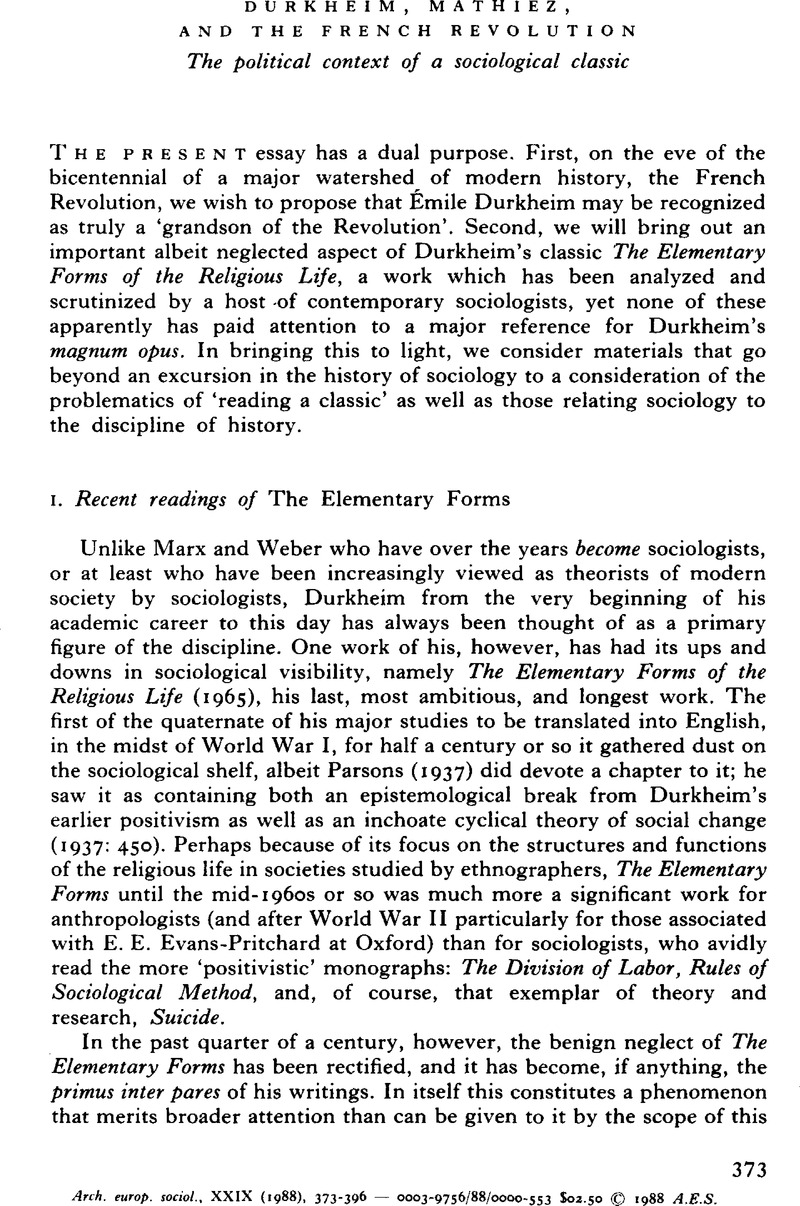
For anyone already wearying of our current revolutionary times, we might consider this last, desperate urge for a return to the beginning to be the French Revolution’s most important lesson for today. These ‘striking’ failures include an inability to consolidate early achievements, a seamless slide into street violence, a tendency to devour not only its enemies but many of its most prominent early leaders, a relentless attack on history, culture and language, an intolerance for dissent or debate, the conclusive repudiation of its own ideals and, after a decade of unrelenting chaos, a circular and ignominious capitulation to absolutism. (Clockwise from top left: Russia, China, Iran and Cambodia.) Modern revolutions that seek to violently and permanently re-order society find their inspiration in the events of 1789 France. As such, it is the myriad and bloody failures arising from France’s experience in 1789 and beyond seem most worthy of our attention today. It is distinct from the earlier American Revolution and Britain’s Glorious Revolution of 1688, which merely revamped the political order without altering societal relations. The French was the first of the modern revolutions – which also include the Russian, Chinese, Iranian and Cambodian iterations – that sought to dramatically re-order society.
#Current date french revolutionary calendar full
“The story of its striking successes and failures is full of lessons for today.” “Within it you find people trying out every idea and political concept that we’re still discussing today.” Much of modern political theory – from Marxism to populism to modern conservatism, as well as the terms “left-wing” and “right-wing” – finds its roots in the Revolution, adds Popkin in an interview. “The French Revolution has never been more relevant than at this moment,” observes Jeremy Popkin, a professor at the University of Kentucky and author of last year’s well-received one-volume history of the French Revolution, A New World Begins.

If we want to understand where revolutions can take us, we might as well start at the beginning.

BLM, the social movement at the head of many protests, is noteworthy as an explicitly radical endeavour that seeks to dismantle capitalism and “disrupt the Western-prescribed nuclear family structure.” BLM’s manifesto (recently removed from its website) declares that children should be raised by “villages that collectively care for one another.” An end to markets and the nuclear family? Surely this is the stuff of revolution. All existing customs, including even traditional family relationships and the scientific method, are now considered manifestations of racist colonialism, white supremacy or other evils from our past.

In the name of fighting systemic racism, society must apparently be dismantled and replaced with something entirely new. Nothing about the status quo seems quite safe these days – from the very existence of police budgets and civil order to the language we use to express ourselves to the foundations of knowledge. Burke is considered the father of modern conservatism for his critique of the French Revolution and preference for gradual, reasoned change over violent upheaval and mob rule. It comes as no surprise that English philosopher Edmund Burke is also having a moment right now. Meanwhile, more rational minds can be heard pining for a “ Thermidorian Reaction” that might set the mob to rights.

Public displays of moral virtue – kneeling before sporting events, unquestioned acceptance of systemic racism, virulent disapproval of contrary opinions or even failure to shout affirmation (“Silence is Violence!”) – have become obligatory components of performative citizenship. It is now commonplace to read about the “ tumbrils passing by” or to lament the propensity of modern-day Jacobins to demand “heads on pikes” as a symbolic Reign of Terror takes hold over some of our most important institutions. And swift retribution follows for anyone who dares to dissent. The physical violence, along with an untold cost in destruction of public and private property, has been followed by much grander demands for sweeping social changes. Louis, Missouri couple found themselves facing an angry crowd of Black Lives Matter (BLM) protesters outside their home shouting, “You can’t stop the revolution!” Homeowner Mark McCloskey, a criminal defence attorney whose client list includes poor blacks, afterward told a local television station, “I really thought it was the storming of the Bastille, that we would be dead and the house would be burned.” As of late October, the rioting had killed at least 25 people, many of them black. – and to a much lesser extent in Canada – that suggest significant historical precedents. The lamentable killing of George Floyd in Minneapolis, Minnesota earlier this year triggered an explosion of violence and street riots across the U.S.


 0 kommentar(er)
0 kommentar(er)
